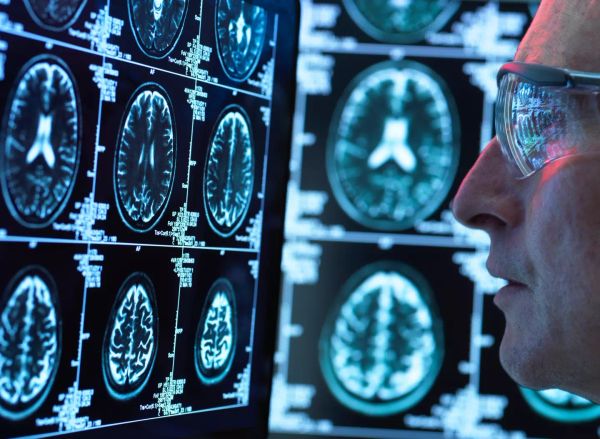Scientists researching Alzheimer’s disease have made a fascinating finding – the condition can be spread from person to person, but only in rare medical incidents. The evidence stems from patients who received a growth hormone from individuals with Alzheimer’s, and some of these patients went on to develop early onset symptoms of the disease.

This observation was made in individuals who received transplants from the pituitary glands of deceased donors. The pituitary gland, located in the center of the brain, plays a crucial role in producing and releasing hormones. However, the practice of using pituitary gland transplants is now prohibited due to the occurrence of Creutzfeldt-Jakob disease (CJD), which is a fatal brain condition.

While this discovery may be alarming, it is important to note that experts have emphasized that Alzheimer’s cannot be transmitted in the same way as a cold or an infection. Prof John Collinge, a co-author of the study, stated, “We’re not suggesting for a moment you can catch Alzheimer’s disease. This is not transmissible in the sense of a viral or bacterial infection.”
In the rare instances where transmission occurred, it was due to accidental inoculation with human tissue containing specific seeds of the disease. These circumstances are exceptionally uncommon. Andrew Doig, a professor of biochemistry at the University of Manchester, emphasized the need for extreme caution in any trials involving tissue transfer.

Fortunately, the transmission of Alzheimer’s through human brain tissue has been prevented for over four decades, and such cases should never occur again. As uncommon as these medical accidents are, they demonstrate that there are additional ways in which Alzheimer’s can develop. While many cases are caused by risk factors related to age or genetic mutations, research has shown that the hereditary transmission of Alzheimer’s is more common than previously thought.

While genetics play a role in a small proportion of cases, recent studies have found that carrying two copies of the same gene can account for 1 in 6 cases. This discovery is crucial for developing targeted treatments for individuals with this specific gene variant.
In summary, while Alzheimer’s can spread through rare medical accidents, there is no need for concern about catching the disease in everyday life. The scientific community has emphasized that these circumstances are highly unusual, and measures have been in place for years to prevent such transmission.





